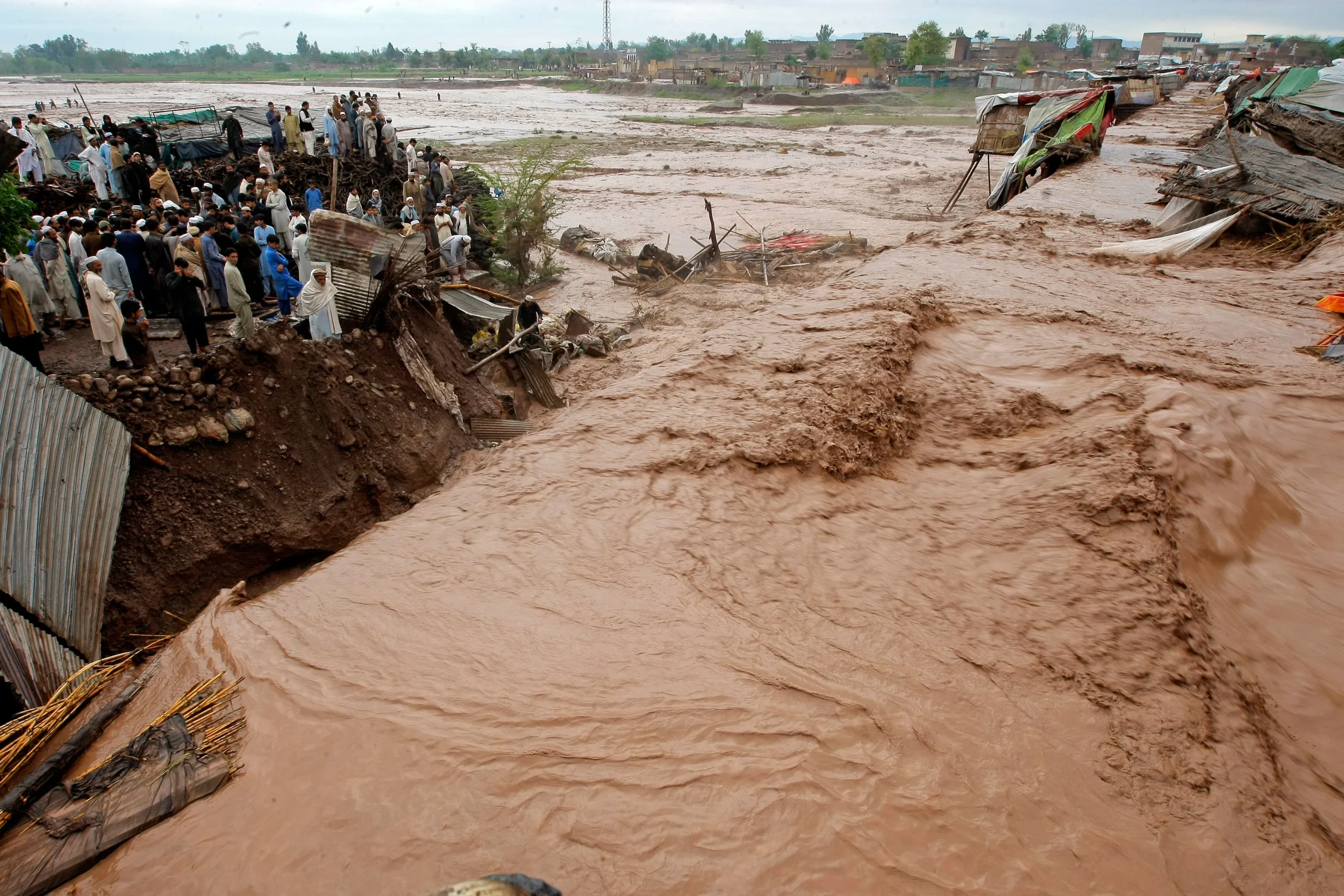EDITORIAL:
Pakistan’s current economic landscape and the condition of its healthcare infrastructure present a stark contradiction to the lofty claims espoused regarding healthcare and disease management. The reality is clear: Pakistan is ill-equipped to handle another health crisis, particularly one as concerning as the outbreak of monkeypox. In recent days, two new cases of the virus have been reported in Pakistan, bringing the total count to five. While this number may not yet warrant ringing alarm bells, it serves as a call to action for heightened awareness and precautionary measures.
Monkeypox is not a novel phenomenon; its origins trace back to 1970, and it has resurfaced intermittently since then. In the previous year, the United Kingdom experienced a surge in monkeypox cases, surpassing all other nations. In response, the World Health Organization (WHO) unveiled a comprehensive catalog of symptoms, including skin rashes, lesions, swollen lymph nodes, fever, and other telltale signs. The WHO emphasized that monkeypox spreads through contact with infected individuals, animals, and contaminated surfaces. As a protective measure, the administration of the smallpox vaccine has proven effective.
Pakistan’s economic realities, coupled with the state of its healthcare infrastructure, cast doubt on the nation’s ability to effectively respond to health emergencies. The country’s financial constraints hinder the allocation of sufficient resources to bolster healthcare services and disease control measures. As a result, the nation finds itself in a precarious position, unable to afford another health crisis. The emergence of monkeypox cases serves as a wake-up call, urging immediate action to mitigate the potential consequences.
While the number of reported monkeypox cases in Pakistan remains relatively low, it is crucial to treat this situation with utmost seriousness. The magnitude of the outbreak is not the sole determinant of its potential impact. Even a handful of cases can pose a significant threat, necessitating a swift and proactive response. The Pakistani government, in collaboration with healthcare authorities, must prioritize intense awareness campaigns to educate the public about the signs, symptoms, and preventive measures associated with monkeypox.
The history of monkeypox serves as a testament to the persistence of this infectious disease. Its sporadic reemergence across different parts of the world underscores the need for continuous vigilance and preparedness. The experiences of countries like the United Kingdom, which faced a surge in monkeypox cases, offer valuable lessons in managing and containing the spread of the virus. Pakistan can draw upon these lessons to develop robust strategies and implement effective preventive measures.
In order to combat the threat of monkeypox, a multi-faceted approach is essential. This includes strengthening healthcare infrastructure, enhancing disease surveillance systems, promoting hygiene practices, and facilitating access to appropriate medical interventions. Furthermore, collaboration with international health organizations and neighboring countries can facilitate knowledge sharing and coordinated responses to prevent the further spread of the disease.
Don’t forget to Subscribe our channel & Press Bell Icon.
The role of public engagement and community participation should not be underestimated. The general population must be empowered with accurate information and encouraged to adopt preventive measures in their daily lives. This can be achieved through targeted awareness campaigns utilizing various media channels, community outreach programs, and partnerships with local influencers and organizations. By mobilizing society as a whole, Pakistan can foster a collective sense of responsibility towards healthcare and disease control.
In August, the organization documented more than 18,000 instances from a staggering 78 nations, with an additional 23 cases surfacing in India during December. Pakistan’s response to the highly contagious nature of mpox has been lackluster, failing to effectively address the potential risks. Preventing an outbreak requires well-informed communities and proactive healthcare personnel who can adeptly confront these hazards. To this end, establishing task forces at airports to impede transmission, implementing oversight mechanisms to screen vulnerable groups such as healthcare workers, the youth, and the underprivileged, and providing isolation and diagnostic facilities are vital measures to ensure safety. While the virus itself does not pose a widespread mortal threat, as it typically subsides within two to four weeks, the WHO has underscored its gravity, with a grim tally of 3,413 deaths recorded as of July. Hence, the provision of free smallpox vaccination serves as an almost foolproof strategy, as it boasts an 85% efficacy in both pre- and post-exposure to the infection. It is imperative to implement comprehensive preventive measures, particularly targeting children, individuals with compromised health and complications, in order to safeguard vast segments of the population from enduring a painful and widespread epidemic.
The passive response to mpox in Pakistan has raised concerns about the nation’s ability to effectively combat this infectious disease. Instead of taking proactive measures to curtail its spread, Pakistan has remained largely indifferent. However, averting a potential outbreak necessitates swift action and the involvement of the entire community, including healthcare professionals, policymakers, and the public. By prioritizing education and awareness campaigns, Pakistan can empower its citizens to recognize the signs and symptoms of mpox, practice proper hygiene, and understand the importance of vaccination. Active engagement and collaboration among various stakeholders will play a crucial role in thwarting the emergence and spread of this disease.
It is crucial to acknowledge that the battle against mpox extends beyond Pakistan’s borders. Given its transnational nature, international cooperation and information sharing are paramount. Pakistan must actively collaborate with neighboring countries and international health organizations to exchange knowledge, coordinate responses, and collectively address the challenges posed by mpox. This includes sharing best practices in disease surveillance, establishing effective communication channels, and implementing joint strategies to prevent the cross-border transmission of the virus. Such collaboration will not only bolster Pakistan’s preparedness but also contribute to global efforts in curbing the spread of mpox.
Moreover, enhancing Pakistan’s healthcare infrastructure is of utmost importance. The nation must invest in strengthening healthcare facilities, particularly in rural areas, to ensure timely diagnosis, isolation, and treatment of mpox cases. This includes equipping medical centers with the necessary resources, training healthcare personnel, and improving accessibility to healthcare services. Additionally, establishing dedicated research centers and laboratories will enable the country to conduct thorough investigations, monitor disease trends, and develop effective treatment protocols.
In the face of an impending health crisis, a robust surveillance system is indispensable. Pakistan should establish a comprehensive disease surveillance network that enables early detection, rapid response, and effective containment of mpox cases. This involves deploying cutting-edge technology, leveraging data analytics, and fostering collaboration between healthcare institutions, research organizations, and governmental agencies. By harnessing the power of data and advanced monitoring tools, Pakistan can proactively identify outbreak hotspots, track the spread of the virus, and implement targeted interventions to mitigate its impact.
In conclusion, Pakistan finds itself at a critical juncture, grappling with the realities of its economy and healthcare infrastructure. The emergence of monkeypox cases serves as a stark reminder of the urgent need for effective healthcare management and disease control. By acknowledging the challenges at hand and implementing comprehensive strategies, Pakistan can better equip itself to respond to health emergencies and safeguard the well-being of its population. The fight against monkeypox requires a concerted effort, involving government agencies, healthcare professionals, and the active participation of citizens.
Subscribe our website for latest updates:
https://republicpolicy.com/shop/
Read More

















